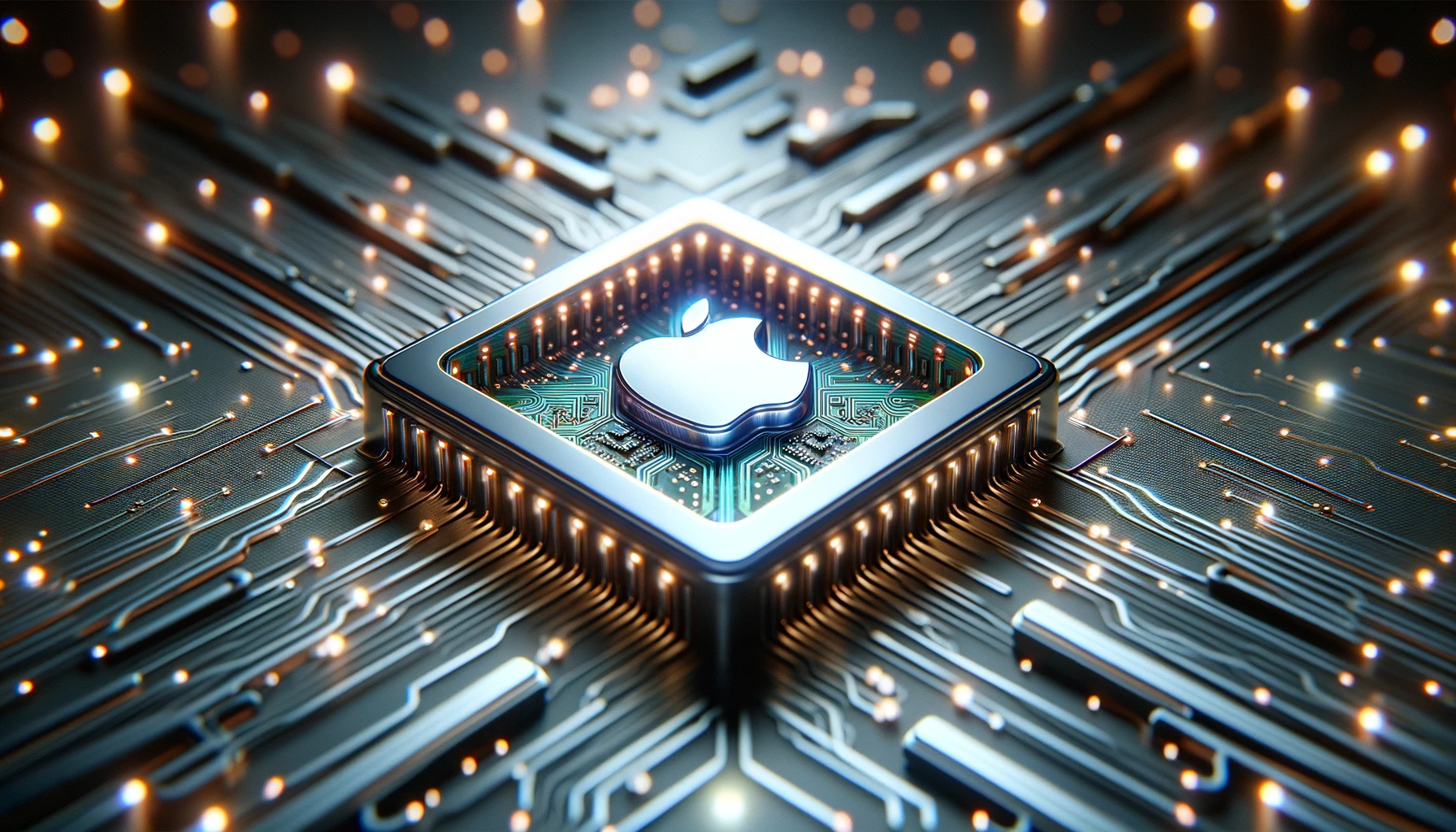
In a tech landscape characterized by rapid innovation and fierce competition, Apple Inc. is making bold strides towards solidifying its position as a powerhouse in artificial intelligence (AI). Recent reports hint at the tech giant’s ambitious plans to develop in-house AI chips, marking a significant step forward in its AI strategy. With Apple’s annual WorldWide Developers Conference (WWDC) on the horizon, analysts and enthusiasts alike are eagerly anticipating the unveiling of what could be a game-changing AI roadmap for the company.
The Chess Game of AI: Cupertino’s Strategic Move
Wedbush analyst Daniel Ives aptly characterizes Apple’s AI endeavors as a strategic chess game, positioning the company ahead of its competitors. The decision to invest in in-house AI chips signals Cupertino’s readiness to play in the big leagues, leveraging cutting-edge technology to drive innovation. By deploying advanced chips in data centers and integrating them into AI-based services, Apple aims to enhance its capabilities and deliver unparalleled user experiences. This strategic move underscores Apple’s commitment to maintaining control over its AI ecosystem while setting the stage for groundbreaking developments in the field.
Monetizing AI through Services: A Paradigm Shift
At the heart of Apple’s AI strategy lies a focus on monetization through its Services segment. By leveraging AI to enrich user experiences and drive engagement, Apple aims to unlock new revenue streams and capitalize on the burgeoning demand for AI-powered services. Developers will play a pivotal role in this strategy, serving as catalysts for innovation and driving the adoption of AI-driven apps. As Apple gears up to unveil its AI roadmap at WWDC, anticipation is mounting for a wave of AI-driven products and services that will redefine the tech landscape.
Unveiling the AI Super-Cycle: What to Expect
The stage is set for Apple to unveil its long-awaited AI strategy at WWDC, captivating its loyal user base and developer community with groundbreaking innovations. Analysts anticipate an AI-driven super-cycle, with the iPad lineup serving as a precursor to what lies ahead. As Apple continues to integrate AI into its product ecosystem, the launch of an AI App Store is poised to be a pivotal moment, offering developers a platform to showcase their AI-powered apps to a global audience. With the highly anticipated release of the iPhone 16 this fall, Apple is poised to usher in a new era of AI innovation, setting the stage for a transformative super-cycle.
The Road Ahead: Charting Apple’s AI Trajectory
As Apple navigates the complexities of the AI landscape, the company remains steadfast in its commitment to innovation and user-centric design. With an array of AI-powered products and services on the horizon, Apple is poised to capitalize on the immense potential of AI to revolutionize industries and enhance daily life. Analysts maintain an optimistic outlook, projecting continued growth and success for Apple as it charts its course in the AI frontier.
Conclusion: A New Era of Possibilities
As Apple prepares to unveil its AI strategy at WWDC, the tech world is abuzz with anticipation for what lies ahead. With the promise of groundbreaking innovations and transformative experiences, Apple’s foray into AI represents a new era of possibilities. As the company continues to push the boundaries of technology and reshape the future, one thing is certain – the AI revolution has only just begun, and Apple is leading the charge.
Exploring Apple’s AI Ecosystem
Delving deeper into Apple’s AI ecosystem reveals a multifaceted approach aimed at harnessing the power of artificial intelligence to enhance user experiences across its product lineup. From Siri’s intelligent voice assistant capabilities to advanced machine learning algorithms integrated into the core of iOS, Apple has been steadily building a robust foundation for its AI ambitions.
The development of in-house AI chips marks a significant milestone in Apple’s journey towards AI leadership. By designing custom silicon tailored specifically for AI tasks, Apple can optimize performance and efficiency, delivering unparalleled speed and accuracy in AI-driven applications. This level of vertical integration affords Apple greater control over its AI ecosystem, enabling seamless integration across its hardware and software platforms.
Furthermore, Apple’s focus on monetizing AI through its Services segment reflects a strategic shift towards subscription-based revenue models. By offering AI-powered services such as personalized recommendations, predictive analytics, and intelligent automation, Apple can create compelling value propositions for its users while generating recurring revenue streams. This shift towards services-driven growth aligns with broader industry trends and positions Apple for long-term success in the AI-driven economy.










